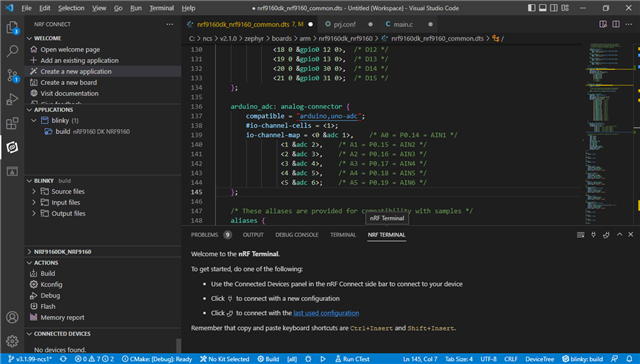Hi, I am currently developing on nrf9160 DK, and would like to set pins 0.14 and 0.15 as analog inputs to read data from sensors, similar to arduino uno, but not sure how to read the pins, or if I need to use ADC driver for this, or if i need to modify the devicetree file. Please help


